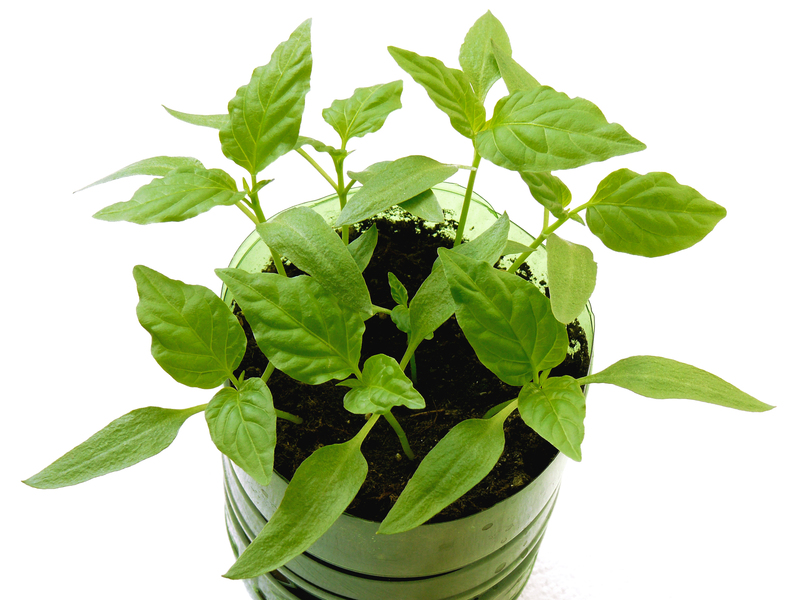Innovative Ways to Minimize Waste in Your Home
Reducing household waste is increasingly vital as families look for sustainable living solutions. Minimizing waste at home not only supports environmental conservation but also saves money, declutters your space, and fosters healthier living habits. In this comprehensive guide, we explore practical and creative strategies to reduce household waste, ensuring your home runs efficiently and eco-consciously.
Why Minimizing Home Waste Matters
Every action taken within your home impacts the wider world. Household waste contributes significantly to landfill problems, greenhouse gas emissions, and resource depletion. By implementing innovative ways to minimize waste in your home, you can:
- Conserve resources by reducing demand for manufacturing new products.
- Cut costs on purchases and waste management.
- Reduce your carbon footprint and environmental impact.
- Build sustainable habits for family and future generations.
Let's explore some impactful methods for minimizing household waste effectively.

Conduct a Home Waste Audit
The first step towards waste minimization is understanding where your waste comes from. Carry out a waste audit by analyzing your trash over a week. Note:
- The most common items you throw away
- Sources of packaging and disposable items
- Patterns in food waste
- Frequency of electronics or clothing disposal
Once you know where the majority of your household waste is generated, you can target specific areas for improvement and seek out innovative practices to minimize waste at home.
Rethink, Refuse, Reduce, Reuse, Recycle
You may be familiar with the "3 Rs" of waste management - reduce, reuse, recycle - but modern sustainability experts suggest expanding to five (or even more!):
- Rethink: Question if you need to buy an item in the first place.
- Refuse: Say no to unnecessary packaging, freebies, or single-use items.
- Reduce: Buy only what you need and opt for items with minimal or no packaging.
- Reuse: Repurpose goods or buy secondhand to extend their lifecycle.
- Recycle: Properly sort and recycle all eligible materials.
Innovative Waste Minimization Ideas Room by Room
Implementing creative waste reduction strategies throughout your home starts with tackling specific rooms. Here's how to reduce household waste with innovative solutions, one space at a time.
Kitchen: The Heart of Waste Reduction
- Compost food scraps: Use countertop compost bins to collect fruit and vegetable peels, coffee grounds, and eggshells. These can be composted at home or through municipal programs.
- Buy in bulk: Minimize packaging by purchasing pantry staples in bulk. Bring your own reusable containers for dry goods and produce.
- Store food properly: Invest in airtight containers, beeswax wraps, and silicone covers to extend the life of perishable foods and avoid spoilage.
- Meal plan: Planning meals not only reduces impulse purchases but prevents food waste due to forgotten ingredients.
- Get creative with leftovers: Transform leftover meals or ingredients into new dishes, like soups, stir-fries, or smoothies.
- Switch to reusable: Ditch single-use kitchen products, such as paper towels, plastic wrap, and baggies, for alternatives like cloth towels and containers.
Bathroom: Embrace Low-Waste Self-Care
- Opt for bar soap: Reduce plastic waste with package-free bar soaps and shampoos.
- Use reusable razors and cloths: Choose stainless steel razors and washable makeup remover pads.
- Buy in bulk or refillable options: Refill shampoos, conditioners, and cleaners at zero-waste stores to cut down on containers.
- Switch to bamboo: Replace plastic toothbrushes and cotton swabs with biodegradable bamboo alternatives.
- Compostable dental floss: Disposable floss often contains non-biodegradable plastic; opt for compostable silk or corn fiber floss instead.
Living Room: Eco-Friendly Leisure & Decor
- Digital subscriptions: Read magazines, newspapers, and books digitally to lower paper waste.
- Selective purchasing: Prioritize quality over quantity when adding new decor or furnishings to your home.
- Secondhand finds: Thrift stores, online marketplaces, and yard sales are excellent sources for gently used furnishings and entertainment.
- Decor DIY: Repurpose old items as new decor (e.g., turning glass jars into vases or candle holders).
- Repair and upcycle: Instead of tossing broken furniture or electronics, repair or upcycle them into something new.
Laundry Room: Sustainable Washing Habits
- Eco-friendly detergents: Use powder or liquid detergents sold in recyclable packaging, or try making your own.
- Mesh laundry bags: Prevent microplastics from synthetic fabrics entering waterways with laundry bags that trap tiny fibers.
- Cold water washing: Save energy and prevent clothes from wearing out as quickly by washing in cold water.
- Dry naturally: Whenever possible, hang clothes to dry instead of using the dryer.
- Repurpose old textiles: Turn old towels and t-shirts into cleaning rags, pet bedding, or reusable shopping bags.
Tech-Driven Ways to Minimize Home Waste
Embracing technology can dramatically reduce waste generation:
- Smart inventory apps: Use mobile apps to track pantry and fridge contents. These help prevent over-purchasing and food spoilage.
- Online swap platforms: Join local swap groups or use dedicated apps to exchange or give away unwanted goods instead of discarding them.
- Compost monitors: High-tech compost bins can monitor conditions to optimize breakdown and signal when compost is ready for garden use.
- Digital decluttering: Go paperless with digital bills, statements, and receipts.
Embrace Zero-Waste Shopping
Moving towards a zero-waste lifestyle starts with adopting better shopping habits:
- Bring your own bags: Always carry reusable shopping bags, produce bags, and containers.
- Shop local: Support farmers markets and retailers that use minimal or compostable packaging.
- Choose package-free stores: Many cities now feature zero-waste grocery stores where you fill your own containers.
- Invest in quality: Buy durable products designed to last rather than frequent, disposable replacements.
- Avoid impulse buys: Pause and rethink before purchasing anything new. Ask, "Do I need this? Can I borrow, rent, or buy used?"
Minimize Waste Through Smart Donation & Repurposing
Before throwing items away, consider if they can serve a second life:
- Donate usable goods: Clothes, electronics, furniture, and kitchenware are often needed by others. Donate to charities, shelters, or specific item recycling organizations.
- Repurpose creatively: Get crafty by turning glass jars into storage containers, using cardboard for kids' crafts, or transforming old clothes into quilts.
- Host swap parties: Gather friends and neighbors to trade unwanted items like toys, books, or kitchen gadgets.
Composting: Turn Food Scraps Into Treasure
Composting is one of the best ways to reduce household waste, turning kitchen scraps and yard clippings into nutrient-rich soil. Try:
- Countertop composters: These compact devices make composting easy, even in small spaces.
- Vermicomposting: Use worms to break down food waste efficiently indoors or outdoors.
- Municipal compost pick-up: Many cities offer curbside compost collection - check your local council's policies.
Instead of filling your trash with peels, eggshells, and coffee grounds, turn them into homemade compost for your plants and garden!
Choose Reusable Over Disposable
One of the simplest yet most effective approaches to minimizing waste at home is swapping disposables for reusables:
- Replace paper towels with washable cotton cloths.
- Use stainless steel or glass straws instead of plastic ones.
- Swap bottled water for a filter and reusable water bottle.
- Invest in silicone food bags and beeswax wraps to cut plastic wrap and baggie waste.
- Carry a reusable coffee cup for cafe visits.
Preventing Food Waste: Smart Cooking & Storage Tips
Food waste accounts for a significant portion of household trash. Here are some tips to innovate your kitchen routines:
- First In, First Out (FIFO): Organize pantry and fridge so older items are used first.
- Embrace "ugly" produce: Many fruits and vegetables are thrown out for minor blemishes. They're perfectly edible!
- Use all parts: Save vegetable scraps for homemade broth or soup. Citrus peels can zest up desserts or freshen sinks.
- Preserve excess bounty: Freeze, dry, or can extra produce before it spoils.
- Share excess: Use neighborhood sharing apps or community fridges to distribute leftovers or extra food.
Involve the Whole Family in Waste Reduction
Getting everyone on board is key to making waste minimization part of your lifestyle. Consider:
- Setting goals and tracking progress: Chart your waste reduction successes on a whiteboard or digital tracker.
- Making recycling easy: Place labeled bins for sorting recyclables in convenient locations.
- Teaching kids creatively: Use games and challenges to encourage children to minimize waste and value sustainability.
- Celebrating milestones: Reward your efforts (perhaps with a zero-waste picnic!) when you reach reduction goals.

Innovative Community and Local Solutions
- Join local composting cooperatives: These shared initiatives pool resources to create compost, even for those without space to compost at home.
- Participate in repair cafes: Attend local workshops where volunteers help repair appliances, garments, and more for free.
- Advocate for better recycling: Encourage your community to improve recycling facilities and educate residents.
- Organize neighborhood swaps: Host events for trading books, clothing, or kitchenware locally.
Conclusion: Make Your Home a Model of Waste Innovation
Minimizing waste in your home is an ongoing journey that demands creativity, commitment, and community involvement. By auditing your habits, embracing technology, switching to reusable options, composting, and engaging your family, you can significantly reduce your environmental footprint. Not only will your household run more efficiently, but you'll inspire others to rethink consumption and embrace a more sustainable future.
Start implementing these innovative home waste management strategies today and watch how small changes lead to impactful, lasting results!
Remember, every little action to minimize waste at home counts toward building a cleaner, greener world for future generations.






